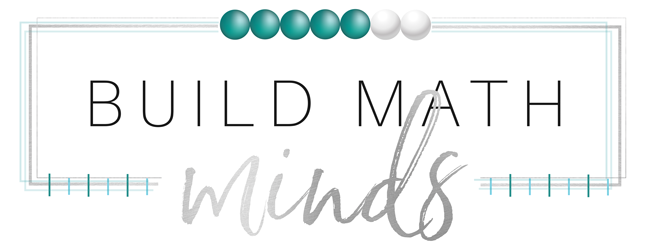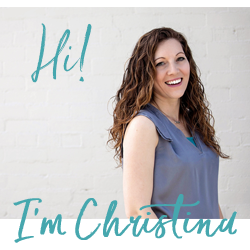Resources mentioned in this episode:
Donna Boucher’s blog the Math Coach’s Corner
Become a member of the Build Math Minds PD site
Register for the Virtual Math Summit 2021
Look at the list of all the Virtual Math Summit speakers
Welcome fellow Recovering Traditionalists to Episode 103. Today you are getting a Preview of 3 more 2021 Virtual Math Summit Sessions.
Welcome to Build Math Minds the podcast, where fidelity to your students is greater than fidelity to your textbook. I’m your host, Christina Tondevold, the recovering traditionalist and BuildMathMinds.com Founder, where my mission is to change the way we teach elementary math to our kiddos. Are you ready to start building math minds and not just creating calculators? Let’s get started.
This year is the 5th Annual Virtual Math Summit presented by Build Math Minds. All the sessions for the Virtual Math Summit are pre-recorded and then they go ‘live’ on July 29th & 30th. As I watch through the sessions, I’m picking out a snippet of each session to share with you here on the podcast. If you’d like to virtually attend the conference for free go to virtualmathsummit.com/register.
Okay, let’s get into our 3 sneak peeks for this week.
Our first sneak peek is from John SanGiovanni’s session, Six Actions for Productive Math Struggle.
John SanGiovanni is always a favorite presenter at the summit and this year he does not disappoint. John is an author of many books and you probably are familiar with a site that you might not even know he is a part of. Howard County’s Math resources site is one of my favorite sites. John is a mathematics coordinator for Howard County and I’m so thankful for all the resources he has helped put together through that site and for the sessions he does for the Virtual Math Summit.
John SanGiovanni: So we’re going to talk about struggle. What do we know about struggle? Well, struggle is an opportunity to dive deeply into math instead of simply seeking correct answers. I need you to hear me say that getting quick answers do matter, but when learning math, there’s more to it than just that right answer. Here’s something else I know. Sheep don’t struggle. Math sheep, that is. They don’t struggle. Math sheep put their heads down, say they can’t do it, wait for me to rescue them, to show them what to do, to tell them to put down their pencils and watch me.
John SanGiovanni: What else do we know about struggle? Our experiences, you and me, as students compromise how we actually facilitate struggle in our classrooms. Our teacher preparation programs didn’t necessarily prepare us for struggle, and to be very clear, prep programs do an awesome job. It’s not about them in that way. Limited time, limited courses. You get the idea. But for some of us like myself, my preparation actually had me create lesson plans to avoid any struggle because ultimately, a good teacher doesn’t have students struggling. Well, of course, that’s not true. But in the United States and in our society, struggle conflicts with our notions of successful teaching.
Some of the things we know about struggle, for many of us, struggle is believed to be something that’s wildly unpredictable, and it just happens in the moment, and I’m just going to respond in the moment and a really good teacher knows what they’re doing, and they can respond really quickly. But the rest of us are out of luck.
Oh, and one more thing. Growth mindset is a beautiful idea. Saying that I believe in it and putting a poster up about it doesn’t necessarily mean that struggle is happening in my classroom.
Up next is Bettina Atwill and a piece from her session titled Numeracy Rich Play, The Eco-Way.
Bettina is a teacher, content developer, and an advocate for Early Childhood Education, STEM, and Environmental Education. Her passion of bringing in Early Childhood Education in the Philippines and developing a Stem and Environmentally Sustainable Education Program in Australia are her driving forces. I love that she is all about helping kids build their numeracy using the resources around them.
Bettina Attwill: “I want to point out that when it comes to embedding more in the universities we have to also consider our role as educator, as a teacher, as a parent. We have to consider what it is we want for the learners. Do we want to help them build their foundation of appreciating numeracy as a part of life, an ongoing way, a lifelong learning perspective, or do we want them to just answer specific tasks for the sake of adhering to standards and regulations? Now, I want you to also visualize how you could use these lessons in play, how you could bring in play into every lesson because once you understand how play is a great way to not only capture the interest, but be able to retain information, then you realize the power of play when it comes to learning.
Next, we need to also think about our expectations. Do we expect children to learn certain things because this is what they need to learn at this age, and this is what the department says we need to be teaching, or are we making our expectations and meeting the children where they are at?
Lastly, I really want to courage what it is and the importance of using found materials for resources, not only getting help with minimizing costs, but at the same time, just using what you have and using nature is more sensory, more… it allows you to use your senses more. And at the same time, it’s economical. And at the same time, it will help learners be able to be exposed to more nature. And this allows us to appreciate nature at different levels.”
Our last sneak peak comes from Donna Boucher’s session The Power of Part-Whole Thinking.
Donna Boucher has been a teacher, math instructional coach, interventionist, and curriculum coordinator. She is kind of like me in that people know her from her blog name and may not know her real name. Donna is often called the “Math Coach’s Corner lady”. On her blog, the Math Coach’s Corner, she shares lots of teaching tips and I’m excited to have her share with us during this year’s summit.
Donna Boucher: “When you heard that this presentation was about part-whole thinking, you probably thought about learning number combinations in kindergarten, and you’re exactly right. That is where part-whole thinking begins. But today, I’ll show you how we can apply that powerful understanding throughout the elementary curriculum in ways that might surprise you. So if you’re an upper elementary teacher, stay tuned because there’s lots in this presentation for you too. I promise. All right. I hope you’re ready to dive right in.
This quote comes to us from Van de Walle’s book, Teaching Student-Centered Mathematics. It’s an incredible resource for math teachers who are looking to teach in a more student-centered, developmentally appropriate way. Basically, it’s the ultimate go-to guide for all things numeracy. The authors state the following, “To conceptualize a number as being made up of two or more parts is the most important relationship that can be developed about numbers.” Here’s what’s important to keep in mind about that quote. Number doesn’t mean just whole numbers as we’ll see in just a bit.
Our first stop is kindergarten where it all starts. I’m going to introduce a little vocabulary, so we’re speaking a common language. Here, we see the number 5 represented by 5 linking cubes. 5 is the whole. We can separate the whole into two parts. In this case, the parts are 2 and 3. When we break the whole into parts, we are decomposing the number. Now, we can take the 3 cubes and put them together with 2 cubes to make a total of 5. When we put parts together to make a whole, we are composing. So breaking apart is decomposing and putting together is composing.”
If you want to watch these entire presentations make sure you go get registered for the summit. If you want access to the past summit session (like being able to watch John’s past sessions and all the other summit presenters), become a member of the Build Math Minds PD site. All 4 years of past summit sessions are only accessible to BMM members. You can enroll in the site at BuildmathMinds.com/bmm
These are just some of the great sessions we have in store for you during the Virtual Math Summit 2021. You can find the entire list of speakers at VirtualMathSummit.com/speakers. Again if you haven’t already registered, go over to VirtualMathSummit.com/register, that page also has information about joining Build Math Minds so that you can access all the past Virtual Math Summit Sessions.




